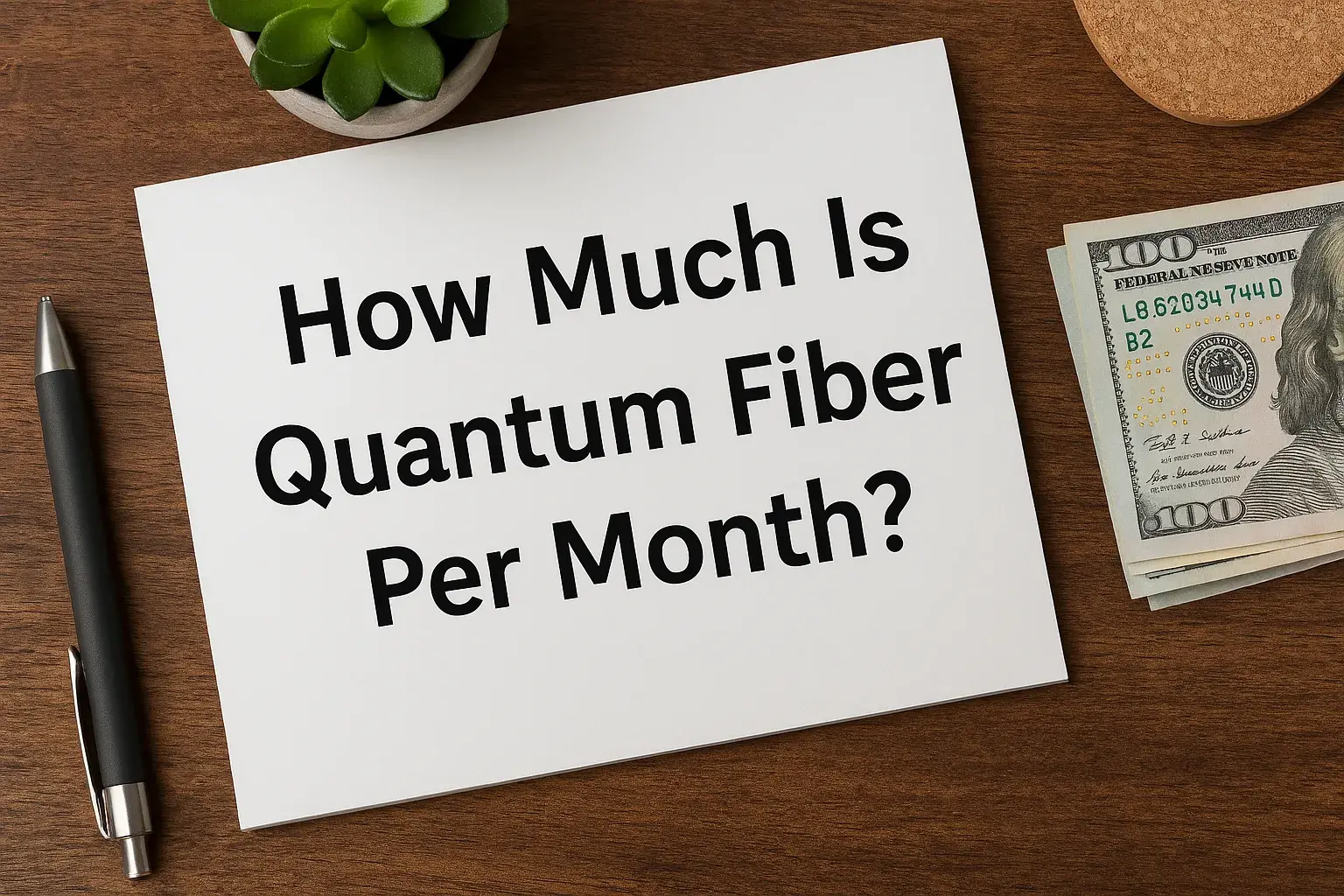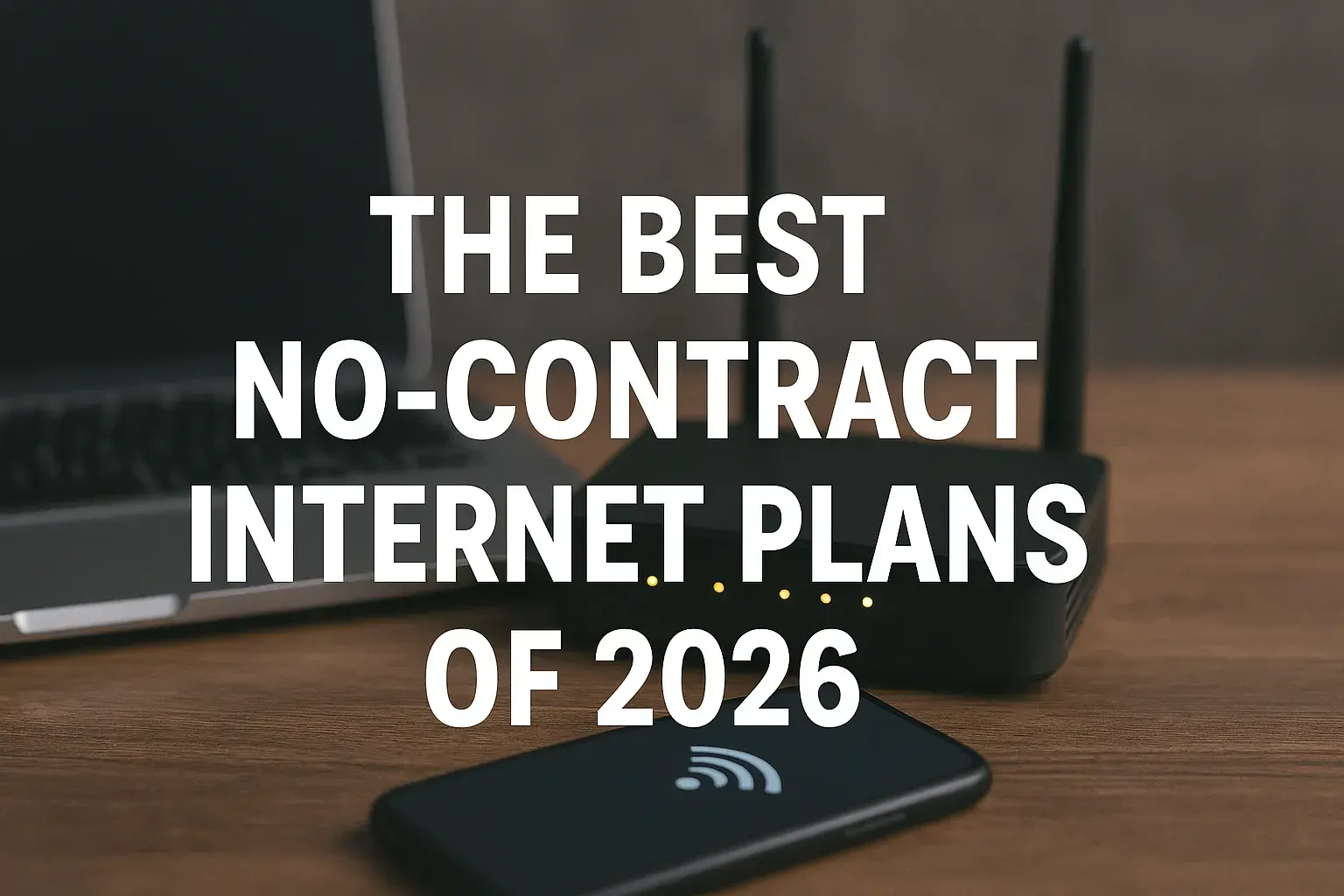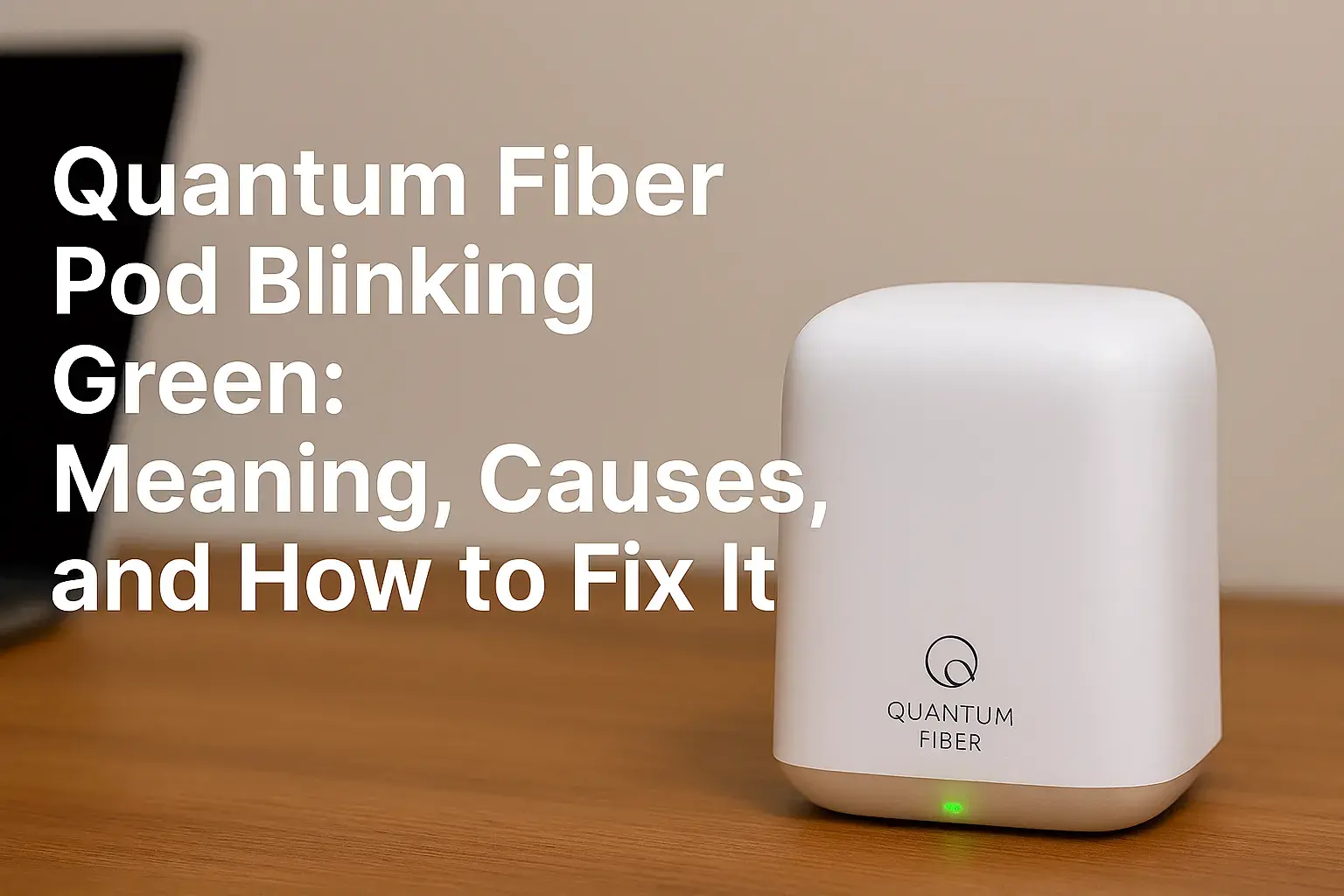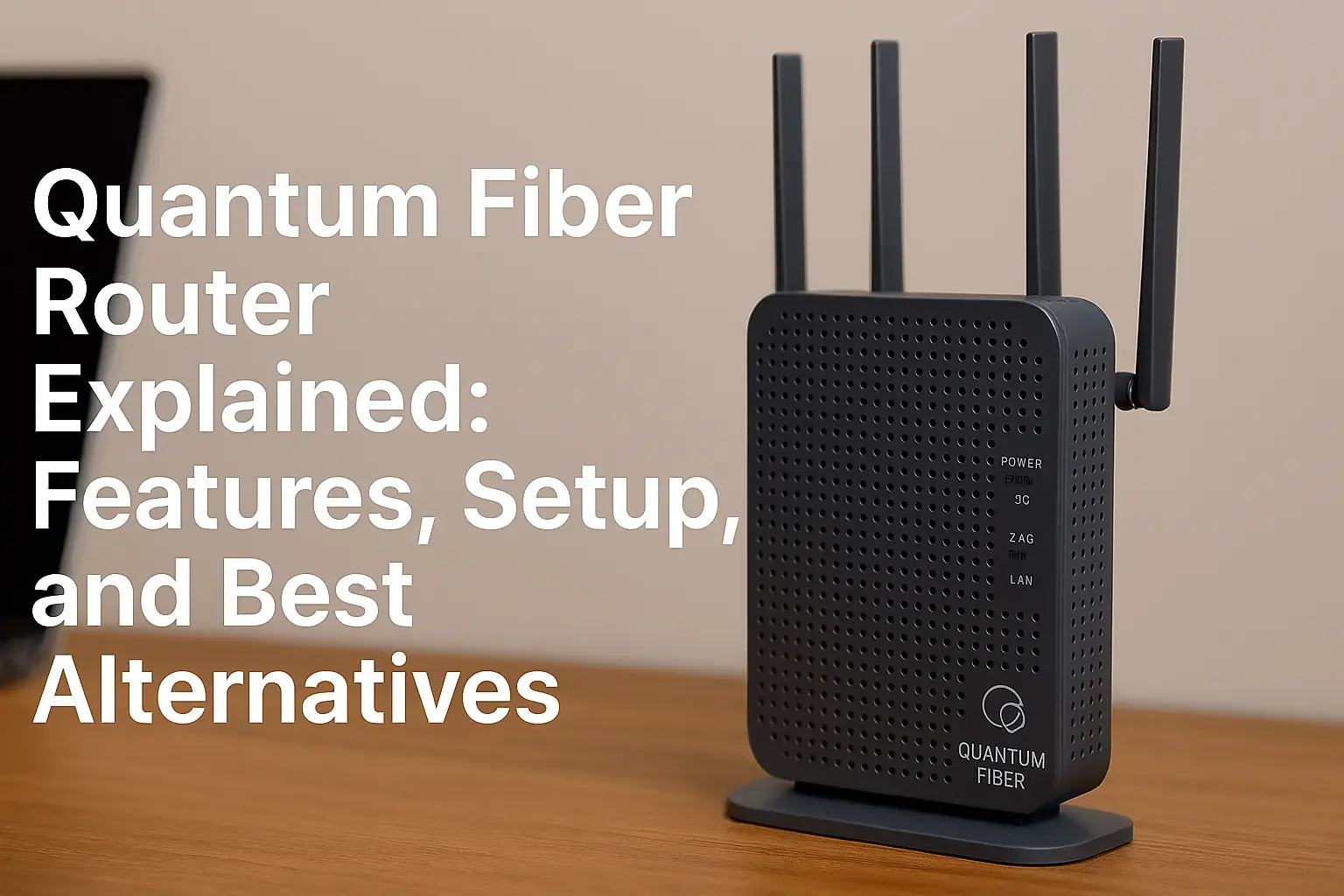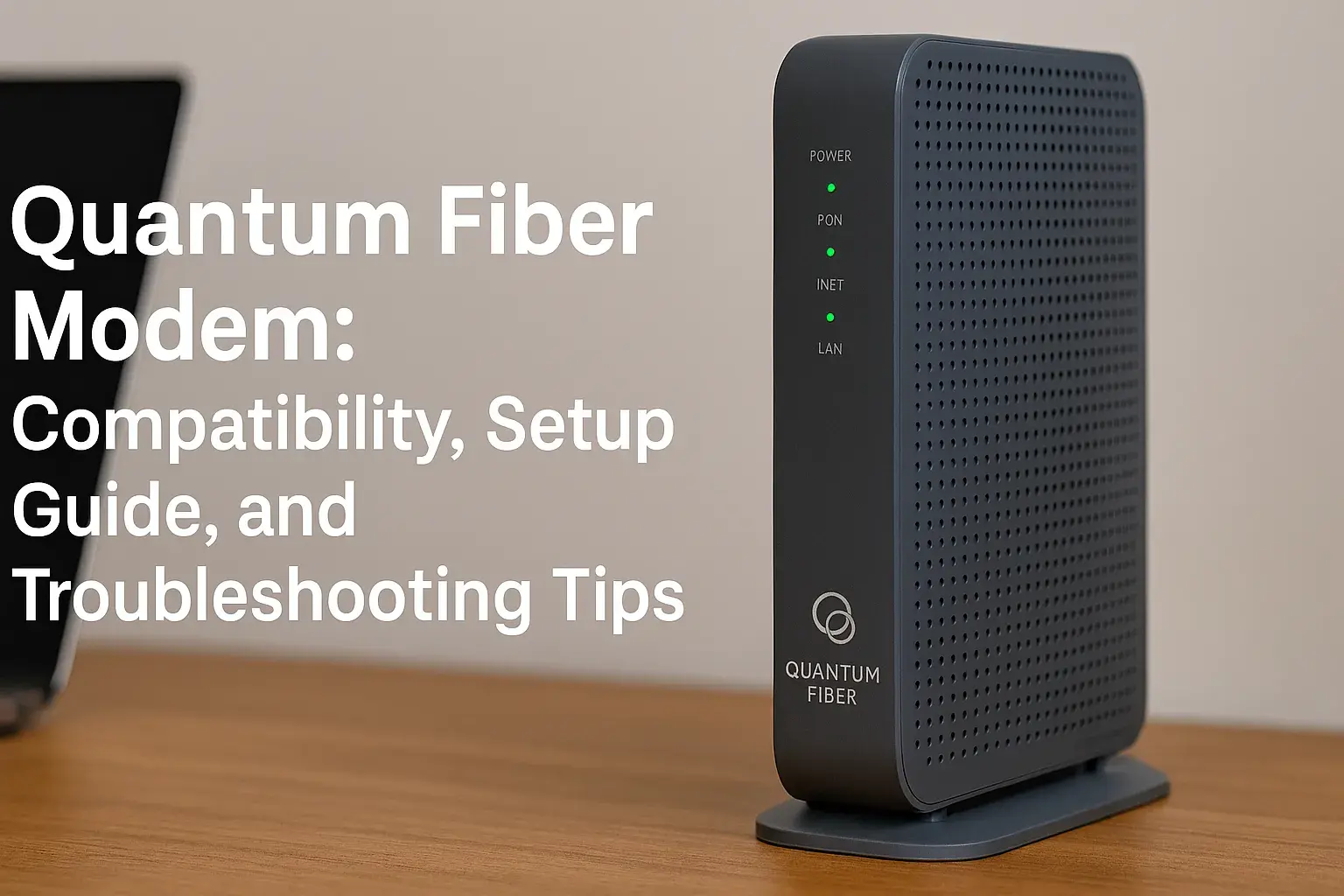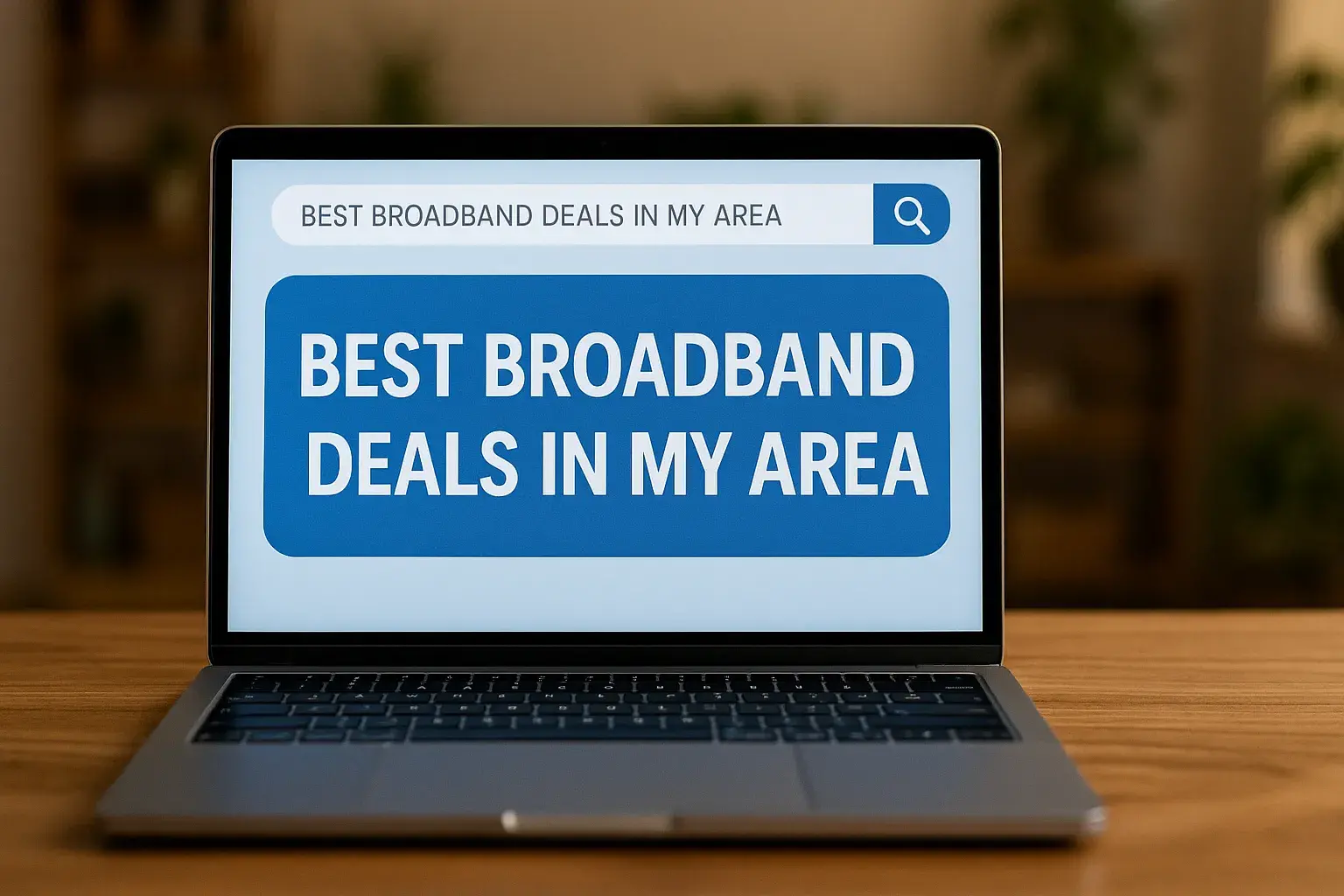Top Black Friday Internet Deals: Best Broadband and Fiber Offers You Can’t Miss in 2025
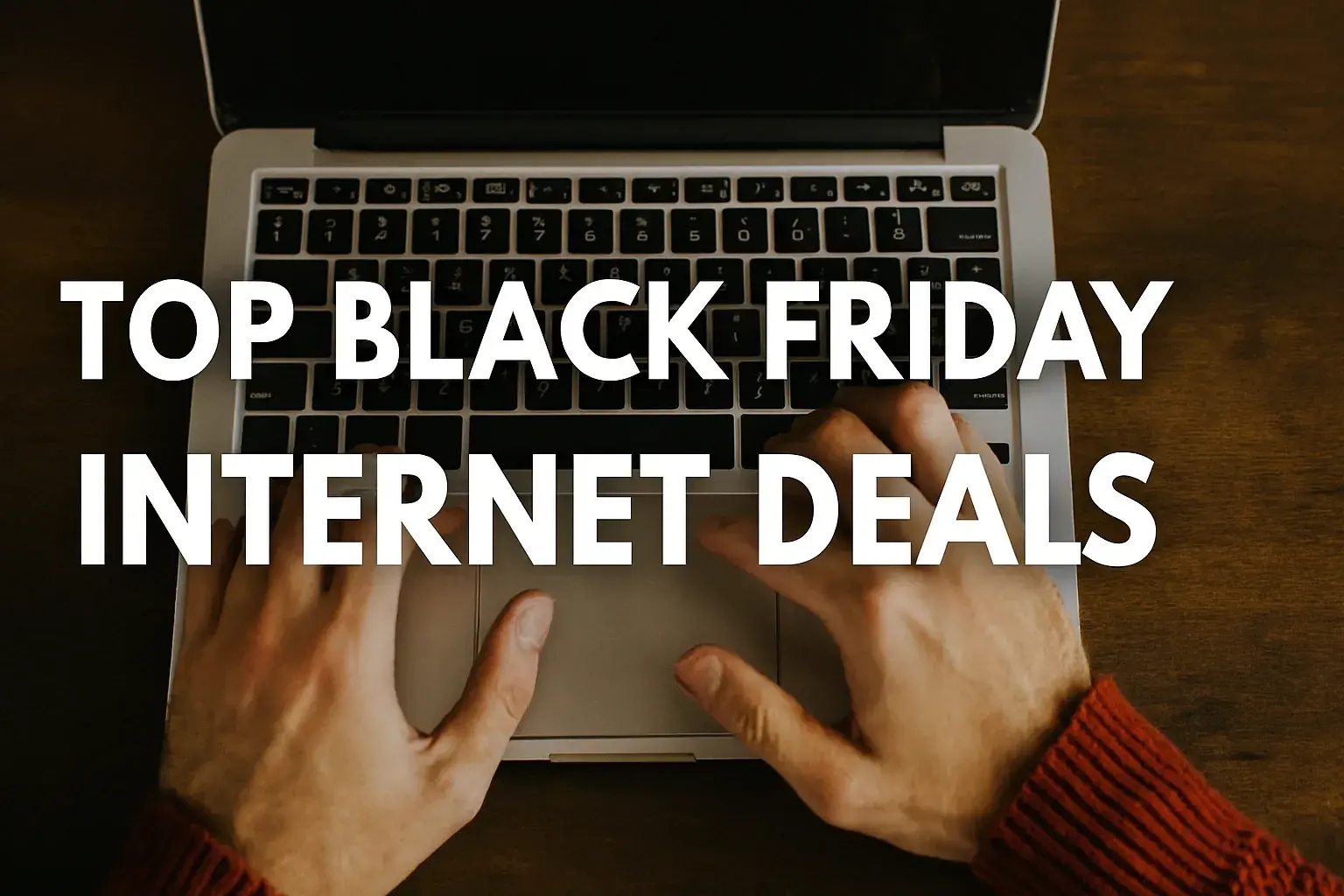
Black Friday 2025 is the absolute best time to secure blazing-fast internet service at a fraction of the usual cost. This year, the focus is squarely on fiber-optic broadband deals, which are dropping to unprecedented low introductory prices, alongside massive savings on high-speed cable and Fixed Wireless Access (FWA) plans. Stop overpaying for slow connections and use this expert guide to find the top, high-value deals from major providers like Verizon, AT&T, Xfinity, and new regional players before they expire on Cyber Monday.
The 2025 Internet Landscape: Why Black Friday Matters
The broadband market in 2025 is marked by intense competition, particularly in the mid-to-high speed tiers. This is largely due to the aggressive expansion of fiber-to-the-home (FTTH) infrastructure and the rapid rollout of 5G Fixed Wireless Access (FWA) services. Industry reports indicate that the wireless internet services market size is projected to reach $705.93 billion in 2025, with fiber adoption continuing its upward trajectory. This heightened competition among major ISPs (Internet Service Providers) creates a perfect storm of opportunity for consumers during the Black Friday/Cyber Monday sales event. Providers use these high-visibility sales to rapidly acquire new customers and showcase their superior speeds.
The Dominance of Fiber and the Rise of 5G FWA
In 2025, fiber is no longer a niche premium product; it's becoming the expected standard for urban and suburban connectivity. Fiber offers symmetrical speeds—upload and download speeds that are equal—a critical feature for remote work, cloud backups, and high-quality video conferencing. This is a massive advantage over traditional cable, which is inherently asymmetrical. The median fixed broadband speed in the United States, as of early 2025, has climbed significantly, driven by this fiber expansion.
Simultaneously, 5G Fixed Wireless Access (from providers like T-Mobile and Verizon) provides a compelling alternative, especially in areas where fiber is not yet deployed. FWA requires minimal installation and often comes with no contracts or hidden fees, making it a Black Friday darling for budget-conscious shoppers. Expect to see FWA providers offer deep discounts on their equipment fees and substantial bill credits for the first few months.
To secure the best deal, consumers must look beyond the advertised monthly price and assess the total cost of ownership (TCO), which includes equipment rental, installation, and post-promotion pricing. Black Friday deals often feature waived installation fees and free modem/router rentals—perks that easily save over $200 in the first year alone.
Fiber Internet Deals: The Gold Standard of Savings
Fiber is the undisputed champion of Black Friday internet deals this year. The market has shifted from offering minor discounts to using deeply subsidized introductory pricing to lock in long-term customers. These deals often come with valuable add-ons, turning a simple internet purchase into a full technology package.
Giga-Speed Wars: Black Friday Price Targets
The benchmark for fiber is the Gigabit plan (1,000 Mbps). While a regular price is typically $70-$100/month, the most aggressive Black Friday offers are projected to drop these plans to:
Entry-Level Fiber (300-500 Mbps): Expect prices around $29.99 to $39.99/month for the first 12 to 24 months. This tier is perfect for most small families and remote workers.
Gigabit Fiber (1,000 Mbps): Look for deals priced between $49.99 and $59.99/month. The crucial differentiator here will be the length of the promotional period and whether equipment fees are waived permanently.
Multi-Gig Fiber (2,000 Mbps+): Major providers like AT&T and Verizon are pushing their 2 Gig and 5 Gig tiers. Black Friday will feature significant $20/month discounts or free equipment bundles (e.g., a free high-end mesh router system) to entice early adopters.
Provider-Specific Fiber Predictions (2025)
While specific deals can change daily, our SEO analysis and market predictions point to these targeted offers:
Verizon Fios: Predicted to offer their 300 Mbps plan at $29.99/month for 2 years with a free router. Also look for a bonus offer of a $200 gift card or free subscription to a major streaming service (e.g., Disney+, Netflix) for Gigabit sign-ups.
AT&T Fiber: Likely to heavily promote their 500 Mbps plan at $35.00/month, guaranteed for 3 years, a powerful value proposition against standard 1-2 year promotions. AT&T’s key strategy is price stability.
Google Fiber / Regional Providers: These providers, which are often contract-free, will compete with referral bonuses and waived installation fees that usually cost $100-$150. Their simplicity and lack of contracts are their main Black Friday selling points.
FWA and Cable Broadband Deals: High-Speed Alternatives
Not every household has fiber access, but that doesn't mean you have to settle for slow speeds. Black Friday 2025 will see significant pushes in the Fixed Wireless Access (FWA) and high-speed cable markets to compete with fiber's growing footprint.
The No-Contract Appeal of 5G FWA
Fixed Wireless Access, delivered over 5G networks, is disrupting the traditional broadband market by offering speeds up to 300 Mbps or more with an incredibly easy setup. FWA deals are popular because they generally feature:
No Annual Contracts: Month-to-month service is standard.
Price Lock Guarantees: Some carriers are offering a "price for life" guarantee, eliminating the dreaded post-promotion rate hike.
Massive Sign-Up Bonuses: FWA Black Friday offers are expected to include free tablets, game consoles, or six months of a premium TV package to win over mobile-centric users.
2025 Market Insight: The FWA market is experiencing rapid growth, especially in rural and underserved markets. TRAI data from late 2025 shows broadband connections nearing the one billion mark, showcasing the massive appetite for mobile-first and fixed-wireless solutions globally. While the US market is different, this trend underscores the demand for accessible, high-speed broadband beyond legacy infrastructure.
Cable's Counter-Punch: Blazing-Fast Download Speeds
Cable providers like Xfinity and Spectrum continue to upgrade their infrastructure, now often offering Gigabit and even 2 Gigabit download speeds using DOCSIS 3.1 and 4.0 technology. Their Black Friday strategy focuses on overwhelming download speed at lower prices than fiber, especially in non-fiber areas.
Xfinity (Comcast): Anticipate their 1.2 Gig speed tier dropping to $55-$60/month bundled with a mobile line or a discounted TV package. Their deals are often geo-targeted, so you must check your specific ZIP code.
Spectrum (Charter): The likely deal is their base-tier, high-speed package (often 300-500 Mbps) offered with waived contract, free modem, and a $100 service credit. Their key benefit is no data caps, which fiber generally matches but cable historically did not.
Expert Note: When evaluating cable deals, pay close attention to the upload speed. A 1.2 Gigabit plan might only offer 35 Mbps upload, whereas a 1 Gigabit fiber plan provides 1,000 Mbps upload. If you game, stream to Twitch, or upload large files for work, Fiber’s symmetrical speed is non-negotiable.
Expert Strategies to Score the Best Deal
Securing the best Black Friday internet deal requires more than just scrolling through deal pages. It demands a strategic, multi-step approach that leverages competition and focuses on long-term value.
Step 1: Check Your True Availability and Price History
The FCC National Broadband Map and independent speed tests are your friends. Before Black Friday, check which providers actually serve your address. Many providers use "Black Friday" to advertise new services in specific areas.
Validate Fiber: Do not trust marketing claims. Call the provider and confirm that the service is FTTH (Fiber to the Home) and not FTTN (Fiber to the Node), which delivers fiber to your neighborhood but uses copper to your house.
Use Price Trackers: Internet providers often inflate the "original" price to make the Black Friday deal look better. Use a tool (or simply a Google Search of the plan’s price history) to confirm that the Black Friday rate is genuinely the lowest price of the year.
Step 2: Negotiate with Your Existing Provider
Your current ISP doesn't want to lose you, and they often have "retention" deals that match or beat new customer offers. This is the single most effective way to save money without switching.
Gather the Competition’s Deals: Find the best fiber or FWA deal available at your address (e.g., AT&T Fiber at $49.99/mo).
Call and Ask for the "Loyalty" Department: State clearly that you are considering switching to the competitor's Black Friday deal and would like to know if they can offer a comparable loyalty promotion.
Push for Free Equipment: The biggest hidden cost is the modem/router rental fee, which averages $15/month ($180/year). Insist on a permanent waiver of this fee as part of the renegotiated deal.
Step 3: Bundle Smartly (The Black Friday Multi-Service Discount)
Black Friday is a prime time for bundling. Many providers will offer massive savings when you add a mobile line.
Example: Signing up for a Comcast (Xfinity) Gigabit plan and adding a single Xfinity Mobile line might drop your internet bill from $80/month to $50/month. This is because the provider makes a long-term profit on the mobile service. If you're due for a mobile upgrade, this is a phenomenal Black Friday strategy to maximize savings across both services.
Comparing Top Black Friday Internet Providers
Here is a critical comparison of the top four types of deals you will encounter during Black Friday 2025. Use this table to quickly assess which type of deal provides the most value for your specific needs. Note: Pricing is a strong 2025 prediction based on market analysis and competitive trends.
Provider Category | Predicted Black Friday Deal | Key Speed/Feature | Best for (User Type) |
|---|---|---|---|
Tier 1 Fiber (e.g., Fios, AT&T) | Gigabit Fiber at $49.99/mo (12 mos.) + $200 Gift Card. | 1,000 Mbps Symmetrical (Equal Upload/Download). | Power Users, Gamers, Remote Workers, Large Families. |
Major Cable (e.g., Xfinity, Spectrum) | 1.2 Gig Download Speed at $55/mo (24 mos.) + Free Modem. | Highest Raw Download Speed for Streaming/Downloads. | Download-Heavy Users, Non-Fiber Areas. |
5G FWA (e.g., T-Mobile, Verizon Home) | $30/mo Price Lock (with qualifying mobile plan) + Free Tablet. | No Contract, All-inclusive Price, Quick Self-Installation. | Renters, Students, Mobile-Bundlers, Budget-Focused Users. |
Regional Fiber (e.g., Google Fiber, Frontier) | 2 Gig Fiber at $79.99/mo (no promo price, no contract). | True Multi-Gig Speed, Superior Customer Service, No Contracts. | High-End Home Offices, Tech Enthusiasts. |
Analyzing Value: Speed vs. Cost in 2025
The metric to focus on in 2025 is Cost per 100 Mbps.
A typical Black Friday Gigabit Fiber deal ($50/month for 1,000 Mbps) is only $5.00 per 100 Mbps. This is a phenomenal value and the target for all shoppers.
A good FWA deal ($30/month for 300 Mbps) is $10.00 per 100 Mbps, still excellent, but you sacrifice raw speed for convenience and the no-contract benefit.
Any deal over $15 per 100 Mbps, even on Black Friday, should be carefully scrutinized. The only exception is if it is a multi-service bundle that saves you significantly on your mobile or TV bill.
The Fine Print: Contract and Fee Analysis
The success of any Black Friday internet deal is determined not by the first year's price, but by the costs hidden in the fine print. As an expert strategist, I implore you to understand the following key areas before signing anything.
1. Post-Promotion Rate Hikes (The Deal Cliff)
Almost all Black Friday deals are promotional and expire after 12, 24, or 36 months. ALWAYS find out the non-promotional rate. A plan that jumps from $49.99 to $99.99 after two years is not as good a deal as a plan that jumps from $59.99 to $79.99.
Actionable Tip: Set a calendar reminder for 11 months into your contract. When the time comes, call the provider, refer to the promotional end date, and re-negotiate a new loyalty discount or switch providers entirely.
2. Equipment Rental Fees (The Stealth Tax)
This is the most common hidden cost. Cable providers, in particular, often charge $10 to $20 per month for the modem and/or router. Over two years, this adds $240 to $480 to your cost.
Look for "Equipment Included": Fiber providers often include the modem (ONT) and router for free as a standard part of their Black Friday deal to beat the competition.
Buy Your Own: For cable internet, buying a compatible, certified modem and router is one of the best investments you can make to cut your monthly bill permanently. The hardware pays for itself in 6 to 10 months.
3. Data Caps and Throttling (The Hidden Limit)
As household data consumption soars—driven by 4K streaming and cloud gaming—data caps are becoming a massive problem. Check the details:
Cable ISPs traditionally implement data caps (often 1.2 Terabytes). Exceeding this can result in hefty overage charges. The best Black Friday cable deals will feature a temporary or permanent waiver of the data cap.
Fiber and FWA providers are typically data-cap free, giving them a major advantage in 2025 where the average high-usage household regularly consumes over 1.5 TB/month.
2025 Usage Stat: With the rise of 8K streaming content and massive game downloads (often 100+ GB per game), a 1.2TB data cap is easily reachable for families with multiple 4K TVs, two remote workers, and a dedicated gamer. Prioritize a data-cap-free plan this Black Friday.
Maximizing Your Savings: Advanced Black Friday Moves
To truly outperform the average shopper, an expert SEO strategist must guide you through less obvious, but highly profitable, maneuvers.
Leveraging Competitor "Pay-Offs"
Many new-generation ISPs will offer to buy out your existing contract up to a certain dollar amount (e.g., $500). This is critical if you are stuck in an expensive cable contract but have a new fiber option available. The new provider takes on the cost of your early termination fee (ETF), making the switch truly painless and saving you hundreds. Black Friday is the most common time for ISPs to sweeten these buy-out offers.
The Power of Timing: Early Bird Gets the Router
The term "Black Friday" is a misnomer in 2025. Deals no longer start on Friday, November 28th. Major sales often begin in the first week of November, especially for internet providers.
"Early Black Friday": Mid-November. Focus on leaked deals and early access for existing customers (often via email).
"Official Black Friday": Thanksgiving Day through Cyber Monday. This is the peak time, where most of the advertised gift cards and bundles are available.
"Cyber Week": The week following Cyber Monday. Look for smaller, highly focused sales, usually centered around specific speed tiers or equipment discounts.
Understanding Modern Speed Requirements
Do you need 1,000 Mbps? While the Black Friday Gigabit deals are great value, you might not need that much speed. Understanding your needs prevents overspending.
Household Profile | Minimum Recommended Speed (Download/Upload) | Ideal Black Friday Target Deal |
|---|---|---|
Single User / Couple, Light Streaming (1-2 devices) | 100 Mbps / 10 Mbps | Base-level FWA (e.g., 5G 100 Mbps plan). |
Small Family, One Remote Worker, Heavy Streaming | 300 Mbps / 30 Mbps | Entry-Level Fiber or High-End Cable deal (e.g., 300 Mbps Fiber at $35/mo). |
Large Family, Multiple Remote Workers, 4K/8K Streaming, Gaming, Heavy Cloud Use | 1,000 Mbps / 1,000 Mbps | Black Friday Gigabit Fiber at $49.99/mo. |
It's clear that the Gigabit Fiber deal is the most future-proof and cost-effective choice for a modern, high-demand household in 2025. The symmetrical speed and lack of data caps offer peace of mind that no cable or entry-level FWA deal can match, especially when priced below $60/month.
Future-Proofing Your Connection: Beyond 2025
The connection you sign up for this Black Friday will likely be the one you live with for the next 2-3 years. Therefore, your decision must be forward-thinking.
The Role of Wi-Fi 7 in Your Black Friday Decision
The adoption of Wi-Fi 7 technology is a major factor in 2025. Wi-Fi 7 routers can handle speeds over 10 Gbps and offer ultra-low latency. While your internet plan may only be 1 Gig, a provider offering a free or heavily discounted Wi-Fi 7 mesh system as part of the Black Friday deal is providing immense value. This equipment will ensure your internal home network can keep pace with your new high-speed service, eliminating internal bottlenecks. Do not settle for a provider offering an old Wi-Fi 5 or basic Wi-Fi 6 router. The free equipment bundle should be a key deciding factor.
The Shift to Multi-Gig Fiber
Providers know that the 1 Gig tier will soon be commoditized. The true battleground is the 2 Gig and 5 Gig service tiers. If you are in an area with multi-gig fiber, the best long-term Black Friday deal might be a heavily discounted 2 Gig plan. Even if you don't use all the speed today, the promotional price locks in a tier that will easily handle your future smart home, VR, and professional needs without requiring an expensive upgrade later. A 2 Gig plan for under $90/month is the ultimate future-proofing move this Black Friday.
Example Scenario: A Black Friday 2 Gig Fiber deal at $84.99/month (12-month promo) vs. a 1 Gig Fiber deal at $49.99/month. The 2 Gig deal is significantly more expensive but offers double the speed and a modern, higher-capacity modem/router setup, ensuring you won't need an upgrade for at least five years.
Final Checklist Before You Buy
Don't click 'Sign Up' until you've answered these four critical questions:
Is it Fiber or is it Fiber-Backed? Fiber to the Home (FTTH) is the best. If it’s cable, check the upload speed—it must be greater than 25 Mbps for modern use.
What is the Price After the Deal Ends? Know the post-promo rate to calculate the true 3-year cost of the service.
Are Equipment Fees Waived Permanently? If not, budget an extra $15-$20/month. If the provider includes a top-tier Wi-Fi 6E or Wi-Fi 7 router, this is a massive bonus.
Are There Data Caps? Fiber and FWA are generally cap-free. Avoid any plan with a cap if you use more than 1.5 TB of data per month.
Conclusion: Your 2025 Internet Upgrade Strategy
Black Friday 2025 is set to be the most competitive year yet for internet deals, driven by the fiber and 5G FWA wars. The key takeaway is simple: prioritize true symmetrical fiber internet at the Gigabit tier. The predicted $49.99 to $59.99/month promotional pricing for 1,000/1,000 Mbps, bundled with a valuable gift card or free equipment, represents the best value for over 90% of households. If fiber isn't available, focus on 5G FWA's no-contract, price-lock guarantees, especially if you can bundle it with a mobile plan for an even deeper discount. The era of slow, expensive internet is over. Use the detailed strategies, comparisons, and hidden fee analysis provided here to skip the marketing hype and secure a connection that will power your digital life efficiently and affordably for years to come. Start checking for deals in your local area now, as the best offers go live well before Thanksgiving. Your patience and preparation will yield a massive upgrade in speed and a significant reduction in your long-term monthly bill. Don't miss this window of opportunity to future-proof your home connectivity.
For more preparation tips, you might find this guide helpful: How to Get Your Website Ready for Black Friday 2025: The Complete Step-by-Step Guide. This video offers general Black Friday preparation advice that can be applied to timing your home internet sign-up.
